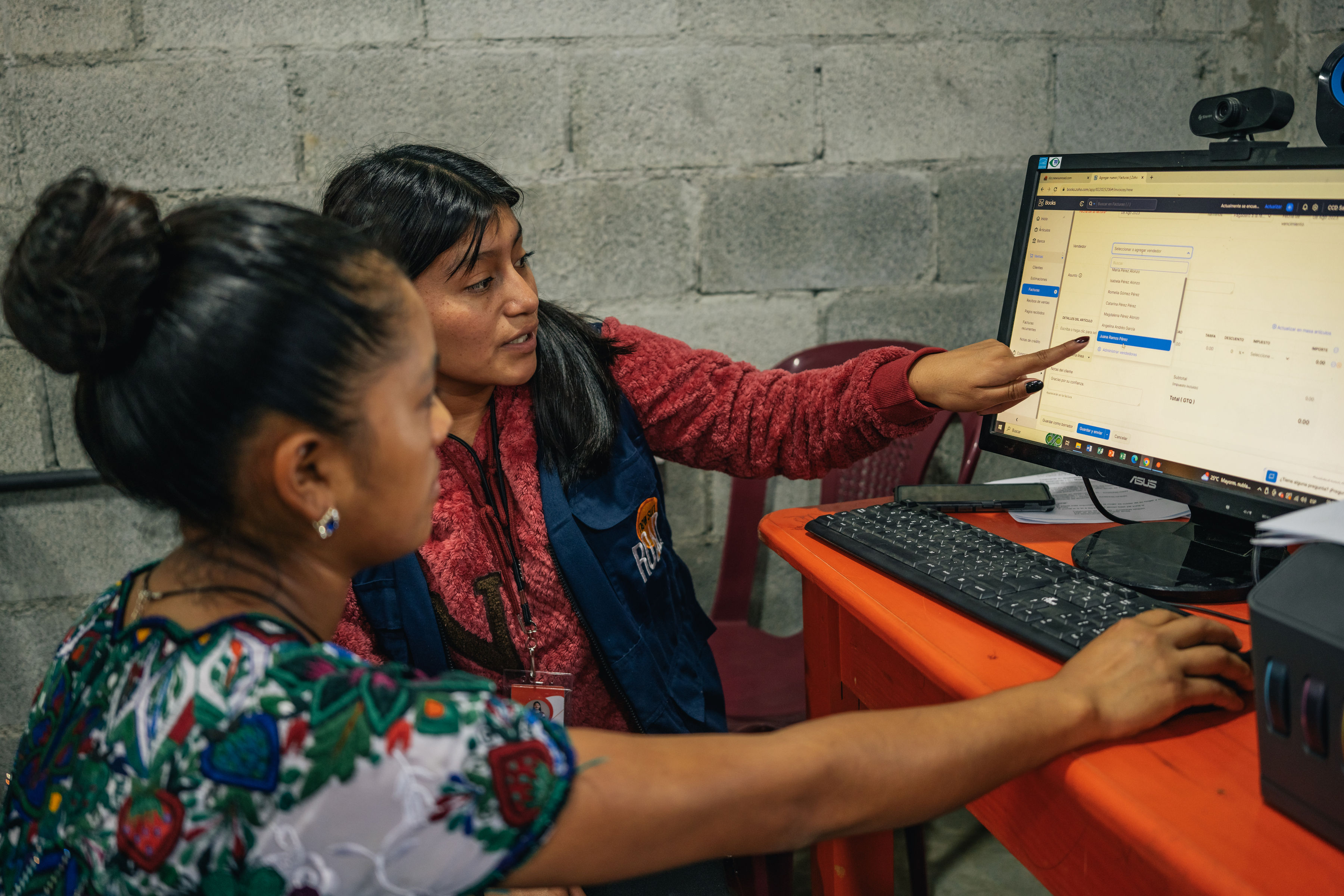
Our graduate student, Nereyda Ortiz Osejo, together with two co-authors - Susana Arrechea and Alejandro Alvarado - published an article titled "Empowering indigenous women in Guatemala: A case study of the role of Digital Community Centers in enhancing digital literacy and changing gender perspectives in Northern Huehuetenango" in Frontiers in Research Metrics and Analytics.
The article is based on the New Sun Road - a Californian start-up incubated at UC Berkeley - project that developed digital community centers with solar electrification and connectivity in rural Guatemala. Susana Arrechea is the Global Programs Director, Alejandro Alvarado is the Country Director for New Sun Road Guatemala, and Nereyda Ortiz Osejo is Consultant at New Sun Road and served as a Design and Development Specialist at World Vision Guatemala in 2019.
This study examines how Digital Community Centers (DCCs) contribute to the empowerment of indigenous Mayan women in the remote Chuj region of Huehuetenango, Guatemala. Although rural and indigenous communities remain largely excluded from digitalization, the DCC model aims to narrow the digital gap by providing Internet access, basic computer training, and workshops on positive masculinities.
The DCC project provided training on positive masculinities, intended to shift attitudes toward gender roles, and a digital skills training program that spanned roughly 3 months. In these traditional communities, the workshop discussions primarily framed “women” from a biological perspective, reflecting local cultural norms, and practices. The positive masculinities training was based on deconstructing traditional mandates associated with hegemonic masculinity, emphasizing shared responsibility and respect for women's rights. The digital skills curriculum was designed to improve proficiency in communication, information, problem-solving, and content creation, following Eurostat's Digital Skills Indicator (European Commission, 2015) framework. Participants learned how to use basic Microsoft Office tools, navigate the Internet, perform Google searches, handle government documentation online, and even experiment with emerging AI applications, such as ChatGPT and Bing, for daily tasks.
To assess the effectiveness of this training, the authors employed a mixed-methods approach, including 10 semi-structured focus groups and 43 surveys under the USAID-funded Mujer Prospera project in Huehuetenango, Guatemala. The survey assessed digital literacy and gender attitudes using the GNDR-4 (Gender Equality) and GEM (Gender Equitable Men) scales. Findings show significant improvements in women's digital skills after a short training period. These gains enabled participants to reduce travel time for tasks such as processing government documents and to launch small-scale economic initiatives. Participants who attended the positive masculinity training—both men and women—reported more equitable attitudes toward women's leadership and decision-making.
Despite these gains, participants stressed ongoing barriers—most notably limited infrastructure, constrained financial resources, and insufficient institutional support—that hamper the long-term viability of the DCCs. They also noted a need for more detailed and standardized training on gender topics to sustain changes in attitudes over time. In conclusion, DCCs offer a promising strategy for bridging the digital divide and facilitating women's socio-economic participation, but further research with larger samples and longer follow-up periods is warranted to confirm and expand upon these initial findings.
The article is published in an open access journal Frontiers in Research Metrics and Analytics - a multidisciplinary journal exploring the different methods and assessment techniques which drive improvements to research efficiency, reliability, and transparency. Frontiers' philosophy is that all research is for the benefit of humankind. Research is the product of an investment by society and therefore its fruits should be returned to all people without borders or discrimination, serving society universally and in a transparent fashion.
Congratulations, Nereyda, on being part of this amazing project and on your publication about this project! We are so proud of your work and how you make the world a better place.
